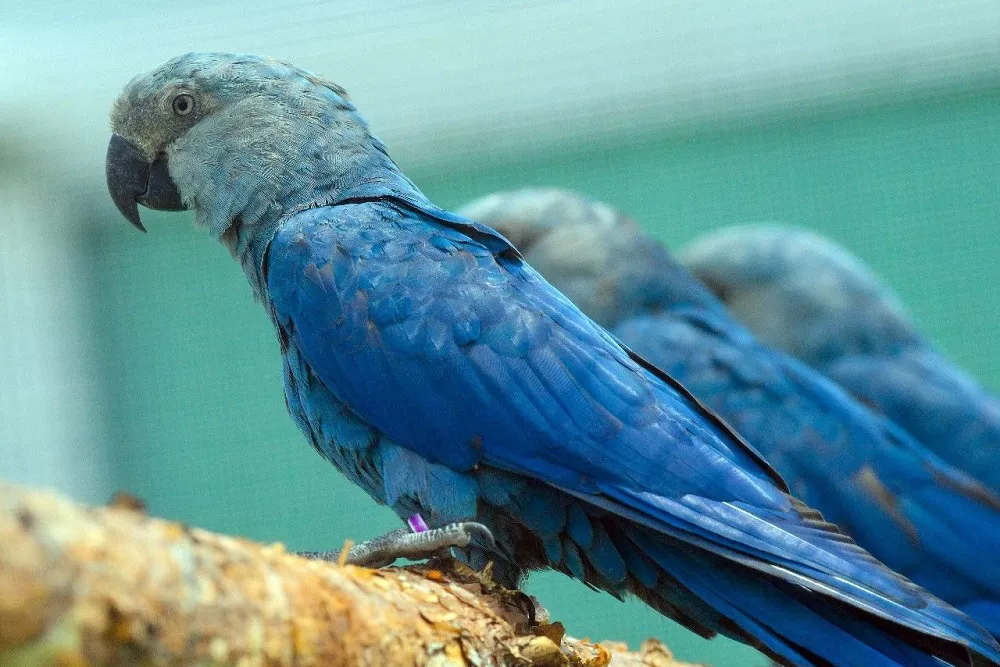Macaws are known for their vibrant colors and playful personalities. They are one of the most popular parrot species, and their beauty and intelligence make them a favorite among pet owners and bird enthusiasts alike. Among the different types of macaws, the rarest macaw is the Spix’s Macaw, also known as the Little Blue Macaw.
The Spix’s Macaw is a small parrot with a distinctive blue-grey plumage and a bare, pale blue ring around its eyes. It is named after Johann Baptist von Spix, a German naturalist who first described the species in the early 19th century. It is also known as the Little Blue Macaw, or the Cyanopsitta spixii in scientific terms.
The Spix’s Macaw is native to Brazil, where it was once abundant in the Caatinga region. However, due to habitat loss and poaching, the species has been pushed to the brink of extinction. The last wild Spix’s Macaw was sighted in 2000, and the bird is now considered critically endangered. It is estimated that there are less than 200 Spix’s Macaws left in the world, with the majority of them in captivity.
One of the reasons why the Spix’s Macaw is so rare is its limited distribution. The species was already restricted to a small area in Brazil, and the destruction of its habitat and the illegal pet trade have greatly reduced its numbers. In addition, the Spix’s Macaw has very specific nesting requirements, which makes it vulnerable to habitat destruction and climate change.
Conservation efforts have been underway to try and save the Spix’s Macaw from extinction. The Spix’s Macaw Reintroduction Program, which began in 1990, aims to breed the birds in captivity and release them back into the wild. The program has had some success, with several Spix’s Macaws being released in Brazil in recent years.
Despite these efforts, the Spix’s Macaw remains one of the rarest birds in the world. Its plight serves as a stark reminder of the impact of habitat destruction and the illegal wildlife trade on the world’s wildlife. It is crucial that we continue to support conservation efforts and work towards protecting endangered species like the Spix’s Macaw, so that future generations can also appreciate the beauty and diversity of our natural world.


 Facebook
Facebook  Instagram
Instagram  Youtube
Youtube 